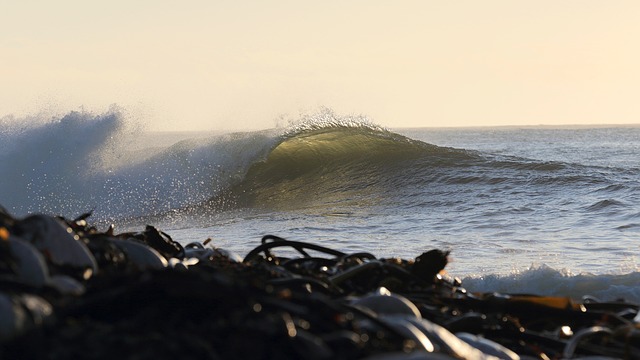By Lynda Kiernan, Global AgInvesting Media
Ocean Rainforest, a company applying new technologies to seaweed farming in the Faroe Islands of the North Atlantic, announced it has closed on $1.5 million in funding led by World Wildlife Fund (WWF), which committed $850,000 to the round.
Ocean Rainforest has more than 10 years of experience in seeding, growing, harvesting, and processing seaweed from open ocean conditions.
Through the application of technology and innovation, the company is internationally recognized as a pioneer in developing the industry, and as a provider to market segments within the food, feed, and cosmetics sectors.
Seaweed is fast-growing and requires no pesticides, fertilizers, arable land, or fresh water – and, in fact, is highly efficient at absorbing CO2 from the ocean, reducing acidification. As Ocean Rainforest’s farms operate, they also perform positive ecological services within the water and surrounding water column. By absorbing CO2 and nutrients from the surrounding sea, the act of seaweed farming creates a cleaner water column while producing a nutrient-dense biomass.
The company is also bringing its open ocean growing system to the U.S. through its U.S.-based subsidiary that is heading up a demonstration project for seaweed cultivation offshore of California.
In June of this year, the company signed an agreement with the Advanced Research Projects Agency-Energy (ARPA-E) to carry out Phase II of this project called MacroSystems under which Ocean Rainforest will lead work in developing and testing new methods for the open ocean cultivation of giant kelp in partnership with Primary Ocean Products and Hortimare for high-volume applications such as bioenergy.
With the goal of de-risking the production process, the partners will be working to scale up the technologies and equipment, such as state-of-the-art cultivation structures – to minimize the environmental impact on marine ecosystems, and its disruption of commercial fishing and navigation.
Having such a minimal impact on both land and freshwater, the low-carbon footprint of seaweed can help mitigate the most pressing challenges of climate change while also providing a source of food for a growing global population.
Currently, Ocean Rainforest’s license in the Faroe Islands has the operation cultivating seaweed next to a salmon farm run by Bakkafrost. But in the future, Olavur Gregersen, CEO of Ocean Rainforest, foresees fish farming and seaweed cultivation diverging allowing for the expansion of the company’s farms to up to 10 square kilometers producing 100,000 tons of seaweed.
“Rising global demand for food, fiber, and fuel – as well as where and how global industries obtain vital commodities – puts increasing pressure on nature. WWF recognizes that we cannot solve these challenges alone,” said Carter Roberts, president and CEO, World Wildlife Fund in the U.S. “We’re excited to support this project because seaweed cultivation holds the potential to reduce these pressures and contribute to a more balanced relationship with nature.”
WWF is one of the leading conservation organizations in the world with a presence in approximately 100 countries. The organization has grown to a membership of over 5 million members over the course of its 50 years of existence.
Driven by a dedication to delivering science-based solutions to that “preserve the diversity and abundance of life on Earth, halt the degradation of the environment, and combat the climate crisis,” WWF stated that it anticipates establishing impact investment as a core financial tool to help achieve its conservation objectives – beginning with sustainable aquaculture and the improvement of water quality, coastal ecosystems, and the efficiency of food systems.
This capital will enable Ocean Rainforest to scale up its seaweed operations in the North Atlantic, and accelerate the growth of offshore seaweed production for the benefit of people, communities, and the climate.
“This investment by WWF and others will allow Ocean Rainforest to deploy new farms at scale, enabling the company to meet the growing demand for its products,” said Gregersen. “But most importantly, it is an affirmation of our sustainable approach to cultivating seaweed in our ocean waters, improving people’s wellbeing, and making a unique and positive contribution to our blue planet.”
– Lynda Kiernan is editor with GAI Media, and is managing editor and daily contributor for Global AgInvesting’s AgInvesting Weekly News and Agtech Intel News, and HighQuest Group’s Oilseed & Grain News. She is also a contributor to the GAI Gazette. She can be reached at lkiernan@globalaginvesting.com

